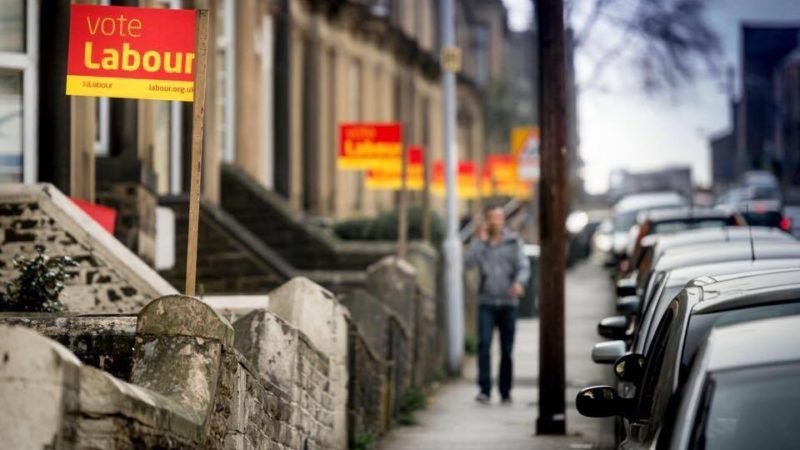
Firstly, change.
The voting public has roundly rejected our current offer twice. Not only did they reject it again in 2019, but more comprehensively. As an active local councillor, I knock on 5,000 doors a year, 100 each week, every week. My team and I hear the unvarnished truth. I know that the Labour Party is deeply unpopular nationally – wrong leader, wrong team, wrong direction.
Some policies they like, of course. But nonetheless some of our ward’s staunchest Labour council voters in May went Conservative in the general election in December – for the first time ever. Their ancestors may indeed have rolled over in their graves, but people did it anyway. And having made the break, surely they will do it again if they think it necessary.
I realise that we don’t tend to read the small print when we sign up to things, but it does need pointing out that Clause I of the Labour Party rulebook – on page one of chapter one – defines our objective thus:
“The party shall bring together members and supporters who share its values to develop policies, make communities stronger through collective action, and support and promote the election of Labour Party representatives at all levels of the democratic process.”
As Labour members, we are obliged to make the necessary changes to secure power in order to achieve our aims. Self-evidently that means no Corbyn mark II as leader. It also means a new leadership team generally – and by that I mean the senior politicians in the PLP, their advisors, the NEC and the senior staff in the party.
We are bound by our constitution not to push on with the current offer for a third, reckless time. People promoting the status quo, or holding on to a purist socialist vision ahead of securing power, need to consider whether this political party membership is right for them.
Secondly, the programme.
We need to reconnect with voters. We should focus on their priorities, not ours. In my area, an industrial town in the north east of England, those are probably jobs, housing and community safety. Yours may be different and we need to reflect that. And wherever we live, there needs to be a huge injection of cash into local government. Most of the services that voters use and appreciate are local, not national – yet they have been laid waste.
There is a danger in producing a very long list of commitments. Our 2019 manifesto reminded me of the Argos catalogue, the “book of dreams” as my friend’s children call it. Chock full of shiny things, all very desirable. But voters couldn’t believe it was possible to have everything on every page.
I am looking for a leadership candidate who will focus on a small number of policies that are relevant and credible and which would impact the largest number of people – and then keep pushing them. We could perhaps choose five, and put them on a card… just an idea. I am not focused on each candidate’s position on Brexit, largely because in five years at the next election that won’t be what matters.
And when we set out our new platform, enough with the working class rhetoric. Voters are aspirational and we forget that at our peril. In any case, if we are going to win another general election at any point, we need to appeal to a wide range of voters, not a subset – but we already know that. Don’t we?
Thirdly, representative leadership.
Personally, I would welcome a woman as leader. I am heartily sick of hearing that we must choose the best person for the job. That suggests that for the last 120 years, the best person for the job has always been a man. Frankly, it is insulting. Several women I voted for in previous contests could have been very fine leaders.
As a generalisation, women are more likely to put themselves forward for leadership roles with the encouragement of their peers. It therefore behoves us to approach and encourage those candidates we would like to see on the ballot. We don’t need to stand idly by and wait to see who emerges – we can be proactive.
And yes, I would also include the other protected characteristics in my drive for equality. But I am happy to begin with the one that represents the majority. And no I am not concerned as to whether the next leader is northern or southern, English, Welsh or Scottish – as long as they are presentable and can articulate a strong and attractive offer.
As a pragmatist, if in the final analysis the candidate demonstrably best placed to win power happened to be male, I guess I would hold my nose and vote for them. I don’t believe it will be necessary though.
Finally, tackling antisemitism.
I am close to the Jewish community and that my party should harbour even a single anti-semite is anathema. So far I’ve clung on, very much in shame. Largely on the grounds that I was here first and that if anyone should leave it should be them – forced out, not excused.
But make no mistake, if a leader is elected who gives them further succour, I will be off. Weeping but not looking back. This is the final issue for me: did candidates stand with our Jewish politicians and communities or did they make excuses?
We’ve been out of power for a decade. I am going to think very hard about where to cast my leadership vote, so that the next decade holds more promise.




More from LabourList
Turning the page? Labour’s recovery in the polls show a path to 2029 victory
Restoration announce recommendations for NEC candidates
‘Factionalism at the top is weakening Labour – and handing a gift to Reform’